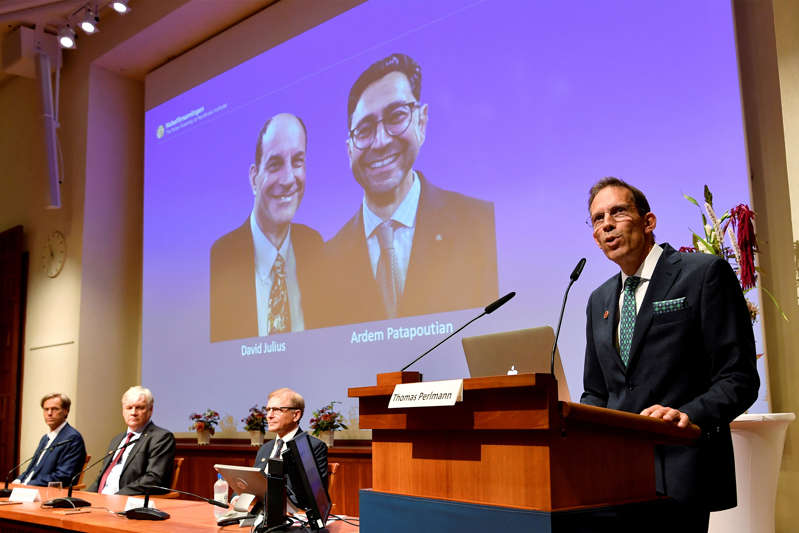Alexander Kaplan, an expert of the NTI “Neuronet” working group, head of the laboratory of the biology department of Moscow State University, spoke about the discovery of similar mechanisms by Nobel laureates in the field of physiology and medicine, scientists David Julius and Ardem Pataputyan and the essence of their research. Izvestia writes about this.
The head of the laboratory of the Biological Faculty of Moscow State University, said that the discovery of Julius and Pataputian is fundamental. According to him, they “opened the whole chain from physical impact on the skin to the appearance of sensations, including the genetic apparatus.” Kaplan noted that Julius worked with temperature effects, and Pataputyan – with touches, as a result, scientists discovered approximately similar mechanisms, and therefore received the Nobel Prize together.
Kaplan also explained what the discovery can lead to in practice. He believes that it “will help to better understand the causes of sensory disorders, to find ways to correct them.” And also, according to him, it may be possible to create technologies for “sensing” robots.
Another application of the discovery of the Nobel laureates can be, according to the head of the laboratory of the biology department of Moscow State University, “the creation of a multimodal, that is, for all senses, virtual reality.”
Earlier it was reported that two Americans received a “Nobel Prize” in medicine for the discovery of temperature and touch receptors – David Julius from the University of California at San Francisco and Ardem Pataputyan from the Scripps Institute. “The laureates have identified critical missing links in our understanding of the complex interdependencies between our sensations and our environment,” the Nobel Assembly said in a statement.
On October 5, during an online broadcast, representatives of the Nobel Assembly of the Karolinska Institute announced the Nobel Prize winners in physics for 2021. They were Italian Giorgio Parisi, Japanese Sukero Manabu and German Klaus Hasselman.

